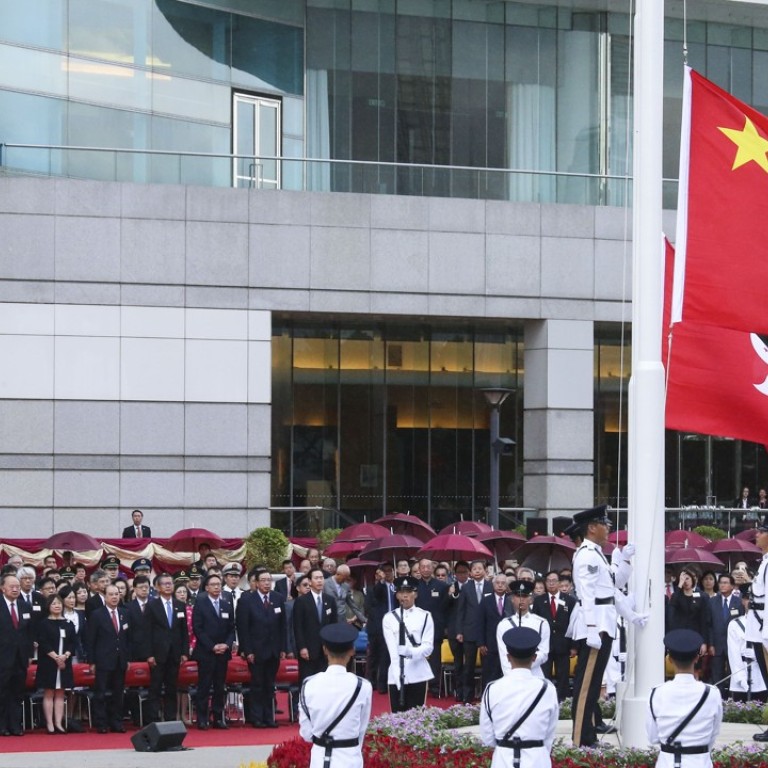
After China makes insulting national anthem illegal, Hong Kong takes steps to enact similar law
But official says law unlikely to be applied retroactively, after mainland Chinese call for soccer fans to be punished for recent booing incidents
But official says law unlikely to be applied retroactively, after mainland Chinese call for soccer fans to be punished for recent booing incidents
The Hong Kong government said on Monday that local legislation to punish disrespect for the national anthem was unlikely to be applied retroactively, and that officials are currently thinking about how best to implement the law.
The city’s top official for constitutional and mainland affairs, Patrick Nip Tak-kuen, said on a radio programme that the local version of the mainland law would keep in mind Hong Kong’s own legal and constitutional traditions.
Asked to confirm if this meant the law would not be applied retroactively, Nip said: “In general, Hong Kong’s laws are not applied retroactively.”
Watch: Hong Kong soccer fans booing during China national anthem
It has been seen as a particular threat to fans of the Hong Kong soccer team, who routinely boo the anthem, March of the Volunteers, before matches.
Some had said that Beijing could pressure Hong Kong to include a clause in the local legislation allowing punishment for actions that predate the law.
Rao Geping, a Basic Law Committee member and a law professor at Beijing’s Peking University, suggested that the Hong Kong government record the “illegal behaviour” of those booing the anthem and look into how they could punish them once the law is in place.
As part of the “one country, two systems” model under which China governs Hong Kong, a mainland law needs to be inserted into Annexe III of the Basic Law to take effect locally.
Work on local legislation would only begin once the law is added to the annexe, Nip said, but the government had already taken “preliminary steps” to understand the mainland law and see how it could be adapted to fit Hong Kong’s legal system.
“Everything will have to wait until the law is officially inserted into Annexe III. Once it is inserted into Annexe III, we will begin local legislation procedures. In fact, we have taken preliminary steps already,” Nip added.
We have actually taken preliminary steps already
While Nip could not provide a time frame on when legislation would be completed, he said it was important for Hong Kong to do it “as soon as possible”.
Explainer: what will China’s national anthem law mean for Hong Kong?
Also on Monday, at a briefing for the Legislative Council’s panel on constitutional affairs, Civic Passion lawmaker Cheng Chung-tai asked why Nip had not consulted legislators before beginning the preliminary legal work.
“Even if it is national law, we still have the Basic Law and the right to discuss these things,” Cheng said.

